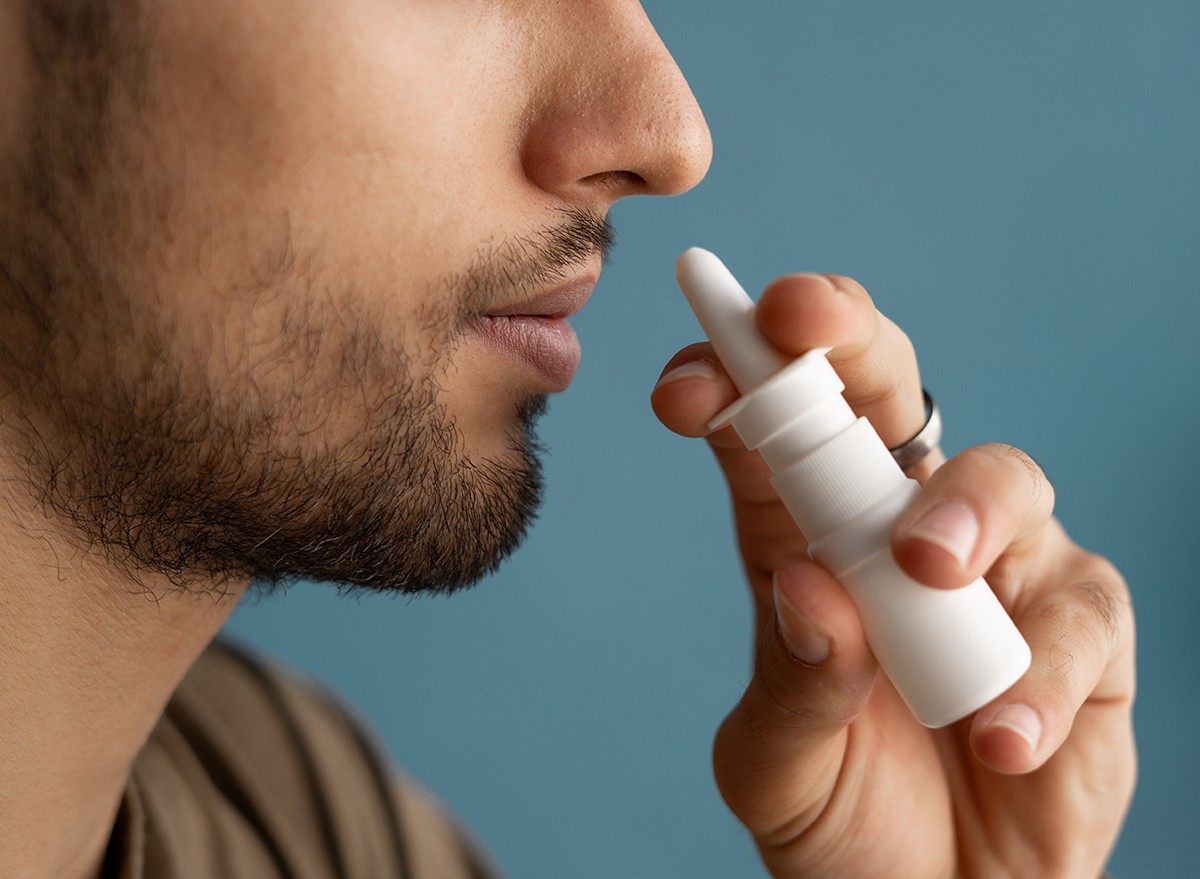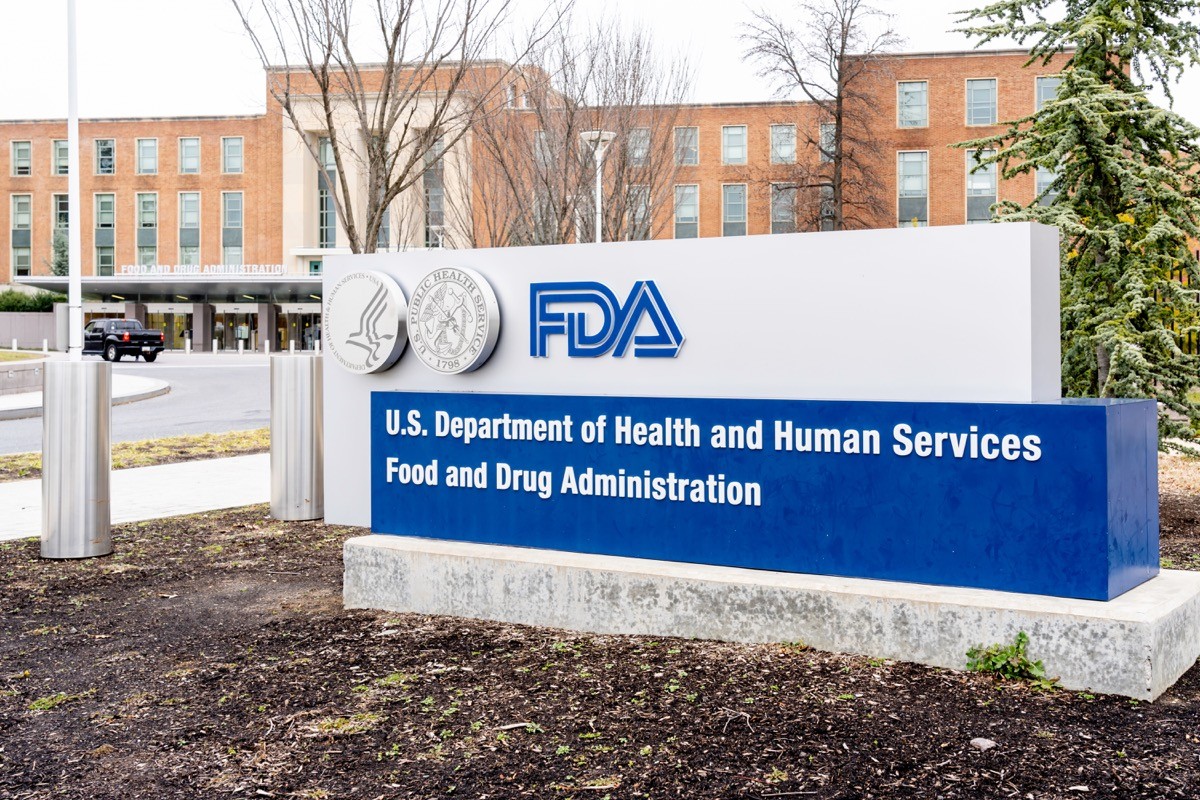Experts Say to Avoid This Popular Over-the-Counter Cold Medication

If you’ve been using certain decongestant cold medications and found they didn’t help with symptoms at all, the FDA agrees—and now the agency proposes removing them from shelves. The use of phenylephrine, used in Sudafed, Dayquil, and other cold and flu medications, will be revoked by the FDA, forcing drug companies to reformulate their over-the-counter meds. “People walk into the drugstore today and see 55,000 medicines on the shelf and they pick one that is definitely not going to work,” Dr. Brian Schroer of the Cleveland Clinic tells Scripps News. “You take away that option and it will be easier for them to self-direct toward products that really will help them.” Here’s what consumers should know.
RELATED: FDA Issues New Alert on OTC Pain Relievers.
Phenylephrine Is Not Effective

The FDA’s proposal is based on extensive review concluding phenylephrine is not effective. “It is the FDA’s role to ensure that drugs are safe and effective,” says Patrizia Cavazzoni, MD, director of the FDA’s Center for Drug Evaluation and Research (CDER), in a press release. “Based on our review of available data, and consistent with the advice of the advisory committee, we are taking this next step in the process to propose removing oral phenylephrine because it is not effective as a nasal decongestant.”
Why Is Phenylephrine Not Effective?

Unlike nasal sprays such as Flonase, phenylephrine is no good once the body breaks it down.
“This is a good drug, but not when it’s swallowed,” Leslie Hendeles, professor emeritus at the University of Florida’s College of Pharmacy, tells Scripps News. “It’s inactivated in the gut and doesn’t get into the bloodstream, so it can’t get to the nose.”
What About a Higher Dose?

Even using a dose 400% higher than is recommended doesn’t work, and could be dangerous. “If you’re using very high doses, the risk is raising blood pressure so high that it could be hazardous to patients,” Randy Hatton, a University of Florida professor who co-led the research on phenylephrine, tells Scripps News.
RELATED: RSV Levels Are “Very High” and “High” in These 21 States.
What Can I Use Instead?

“Consumers should know that a range of safe and effective drugs and other treatments is available to temporarily relieve congestion symptoms due to allergies or a common cold,” says Theresa Michele, MD, director of the Office of Nonprescription Drug Products in CDER. “Consumers can also talk to their doctor or pharmacist about ways to treat these symptoms.”
Criticism For FDA Proposal

The Consumer Healthcare Products Association, which represents over-the-counter drug manufacturers, is not happy about the FDA’s proposal. “CHPA is disappointed in FDA’s proposal to reverse its long-established view of oral PE,” the association said in a statement. “For decades, people have relied on oral PE to relieve their nasal congestion. We believe Americans deserve access to safe and effective OTC medicines and the option to choose the products they prefer for self-care… PE is the only oral OTC decongestant available without purchase restrictions and is included in numerous OTC cough and cold medicines labeled with a decongestant claim. Consumers need options for self-care, and freedom of choice for self-care is a core attribute of our nation’s healthcare system. PE should remain an available option for consumers, because Americans deserve the option to choose the safe and effective OTC medicines they prefer and rely on.”